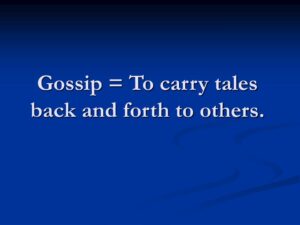Knowledge of Hasan Basri رحمه الله
![]()
Al-Hasan رحمه الله used to swear by Allah that the true believer could not feel other than sadness in this world.11 He would say: “Our salt has disappeared; what good is left in us?” in commentary of the hadith reported from the Prophet – Allah bless and greet him -: “The likeness of my Companions is like salt in food. Food is not good without it.” Al-Hasan رحمه الله also said:
We laugh and yet – who knows? – perhaps Allah has looked at some of our works and said: “I will not accept anything from you.” Woe to you, son of Adam! Can you fight Allah? Whoever disobeys Allah is fighting Him. By Allah! I have met seventy veterans of Badr. Most of their garments were wool. Had you seen them you would have said they are crazy, and had they seen the best among you they would have said: “Those people will have no part in the Hereafter.” Had they seen the worst among you they would have said: “Those people do not believe in the Day of Reckoning.” I have seen people for whom this world was cheaper than the dust under their feet. I have seen people the like of whom would come home at night, not finding more than his own portion of food, and yet say: “I shall not put all of this into my belly. I shall certainly give some away for the sake of Allah.” Then he would give away some of his food in charity, even if he were more in need of it than its recipient.
Imam al-Ghazzali رحمه الله relates al-Hasan’s رحمه الله words on the personal struggle against one’s lusts (jihad al-nafs) in the section of his Ihya’ entitled Kitab Riyada al-Nafs wa Tahdhib al-Akhlaq wa Mu’alaja Amrad al-Qalb (“Book of the Training of the Ego, Disciplining of Manners, and Healing of the Heart’s Diseases”) that al-Hasan al-Basri رحمه الله said:
Two thoughts roam over the soul, one from Allah one from the enemy. Allah shows mercy on a servant who settles at the thought that comes from Him. He embraces the thought that comes from Allah, while he fights against the one from his enemy. To illustrate the heart’s mutual attraction betwen these two powers the Rasulullah صَلَّى اللَّهُ عَلَيْهِ وَسَلَّمَم said: “The heart of a believer lies between two fingers of the Merciful”15…. The fingers stand for upheaval and hesitation in the heart… If man follows the dictates of anger and appetite, the dominion of Satan appears in him through idle passions (hawâ) and his heart becomes the nesting-place and container of shaytân, who feeds on hawâ. If he does battle with his passions and does not let them dominate his ego (nafs), imitating in this the character of the angels, at that time his heart becomes the resting-place of angels and they alight upon it.
A measure of the extent of Hasan al-Basri’s رحمه الله extreme god wariness and scrupulosity (wara’) is given by his following statement, also quoted by Ghazzali رحمه الله: “Forgetfulness and hope are two mighty blessings upon the progeny of Adam; but for them, the Muslims would not walk in the streets.”
Al-Hasan رحمه الله interpreted the verse (Nay, both His hands are spread wide, and He bestows as He wills( (5:64) to refer to Allah’s kindness and goodness.17 Similarly, he interpreted Allah’s qadam to mean “those whom He has sent forth” (qaddamahum) in the hadith of the Prophet – Allah bless and greet him -:
Hellfire will keep asking: “Is there more?” until the Lord of Might places His qadam (lit. “foot”) in it. Then it will say: “Enough! Enough!” (qatt qatt) and gather up all its parts together. There will still remain room in Paradise until Allah originates a creation which He will place in the remainder of Paradise.
Concerning the hadith of Rasulullah صَلَّى اللَّهُ عَلَيْهِ وَسَلَّمَم -: “More people shall enter Paradise through the intercession of a certain man from my Community than there are people in the tribes of Rabi’a and Mudar,” al-Hasan said: “That is Uways al-Qarani.”19
On the verse (If you love Allah, follow me, and Allah will love you( (3:31) al-Hasan رحمه الله said: “Whoever knows his Lord loves Him, and whoever knows the world does without it.”
Al-Qurtubi relates, in his commentary on the verse (A multi-colored drink issues from their bellies, in it there is healing for people( (16:69), that al-Hasan رحمه الله disliked to use medicine other than made with honey or milk.
About the memorizers of Qur’an al-Hasan رحمه الله said:
The reciters of Qur’an are three types. The first type take the Qur’an as a merchandise by which to earn their bread; the second type uphold its letters and lose its laws, aggrandizing themselves over the people of their country, and seeking gain through it from the rulers. There are many memorizers of Qur’an that belong to that type. May Allah not increase them. Finally, the third type have sought the healing of the Qur’an and placed it on the sickness of their hearts, fleeing with it to their places of prayer, wrapping themselves in it. Those have felt fear and put on the garment of sadness. Those are the ones for whose sake Allah sends rain and victory over the enemies. By Allah! That kind of memorizer of Qur’an is more rare than red sulphur.
Ibn al-Jawzi رحمه الله wrote a 100-page book on al-Hasan’s life and manners entitled Adab al-Shaykh al-Hasan ibn Abi al-Hasan al-Basri رحمه الله . In his chapter on al-Hasan رحمه الله in his anthology of Muslim saints entitled “The Portrait of Purity” (Sifat al-Safwa), he mentions a report that al-Hasan left behind a white cloak (jubba) made of wool which he had worn exclusively of any other for the past twenty years, winter and summer, and that when he died it was in a state of immaculate beauty, cleanness, and quality. Among al-Hasan’s sayings: “If you are of a coarse character, then acquire gentleness (tahallam); and if you are not learned, then learn (ta’allam); a person seldom imitates a certain group without becoming one of them” and “Those who feel the least necessity for the wise person of knowledge are usually his immediate family.”
Imam al-Suyuti recounted in one of his fatwas entitled al-Minha fi al-Sibha (“The Profit In Dhikr-Beads”) the story of ‘Ikrima, who asked his teacher ‘Umar al-Maliki about dhikr-beads. The latter replied that he had also asked his teacher al-Hasan al-Basri about it and was told: “Something we have used at the beginning of the road we are not desirous to leave at the end. I love to remember Allah with my heart, my hand, and my tongue.” Al-Suyuti comments: “And how should it be otherwise, when the dhikr-beads remind one of Allah Most High, and a person seldom sees dhikr-beads except he remembers Allah, which is among the greatest of its benefits.”
Ibn Muflih mentioned that al-Hasan categorized the act of kissing the Muslim scholar’s hand as “obedience to Allah” Ta’ala.
In the book he devoted to the sayings and the deeds of Sufis, Rawdat al-Muhibbin wa Nuzhat al-Mushtaqin (“The Garden of the Lovers and Excursion of the Passionate”), Ibn al-Qayyim relates:
A group of women went out on the day of ‘Eid and went about looking at people. They were asked: “Who is the most handsome person you have seen today?” They replied: “It is a shaykh wearing a black turban.” They meant al-Hasan al-Basri رحمه الله
Imam Ibn Jahbal al-Kilabi wrote:
Whenever al-Hasan al-Basri رحمه الله spoke on the science of tawhîd, he would begin by taking out of his gathering all those that were not fit to hear. May Allah have mercy on the Salaf! They did not speak about doctrine except with the Ahlal-Sunna among them – for the Sunna is the basis of the verifying authorities – and they withheld any such discourse from newcomers. They said: “Newcomers see things for the first time and are barely starting on their way. They have no prior experience and no firm foothold in these matters – even if they are seventy years old. Sahl [ibn ‘Abd Allah al-Tustari] said – may Allah be well-pleased with him: “Do not acquaint newcomers with the secrets before they become firmly settled in their belief that the God is One and that the subject of monotheism is Unique, Everlasting, and transcends modality and place. Thoughts cannot encompass Him nor can hearts conceive of Him in terms of ‘how’.”
One of the most remarkable hadiths al-Bukhari narrated in his Sahih is from al-Hasan al-Basri رحمه الله , from Anas, from the Prophet – Allah bless and greet him – who related that after Allah allows him to intercede for the dwellers of the Fire, Allah shall say: “By My Power, by My Majesty, by My Supremacy, and by My Greatness! I shall take out of the fire whoever said: lâ ilâha illallâh.”



